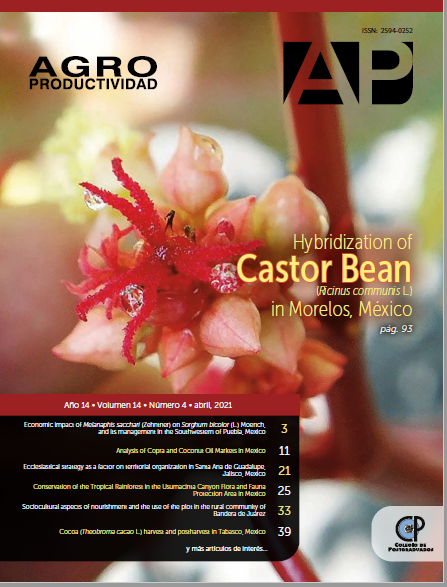EVALUATION OF SURGICAL CASTRATION VS IMMUNOCASTRATION IN BREEDING PIGS
Main Article Content
Keywords
surgical castration, immunocastration, carcass quality, physicochemical characteristics.
Abstract
Objective: to determine the effect of surgical castration and immunocastration on productive parameters, carcass quality, as well as the physicochemical characteristics of the meat in fattening pigs.
Design/Metodology/Aproach: 10 male pigs of the York/Pietrain/Landrace breed with a body weight of 25±5 kg were used per treatment. They were housed in individual pens and fed diets according to their physiological state. The variables evaluated were analyzed with a student's T test for independent samples.
Results: the results do not show differences (p>0.05) in the productive variables, quality of the carcass and physicochemical characteristics.
Study limitations/implications: the study did not consider qualitative variables such as taste and smell of the treatments.
Findings/Conclusions: it is concluded that immunocastration is an alternative to surgical castration since the quality of the carcass is not affected, by the same as the productive variables and physicochemical characteristics of the meat, favoring animal welfare.

